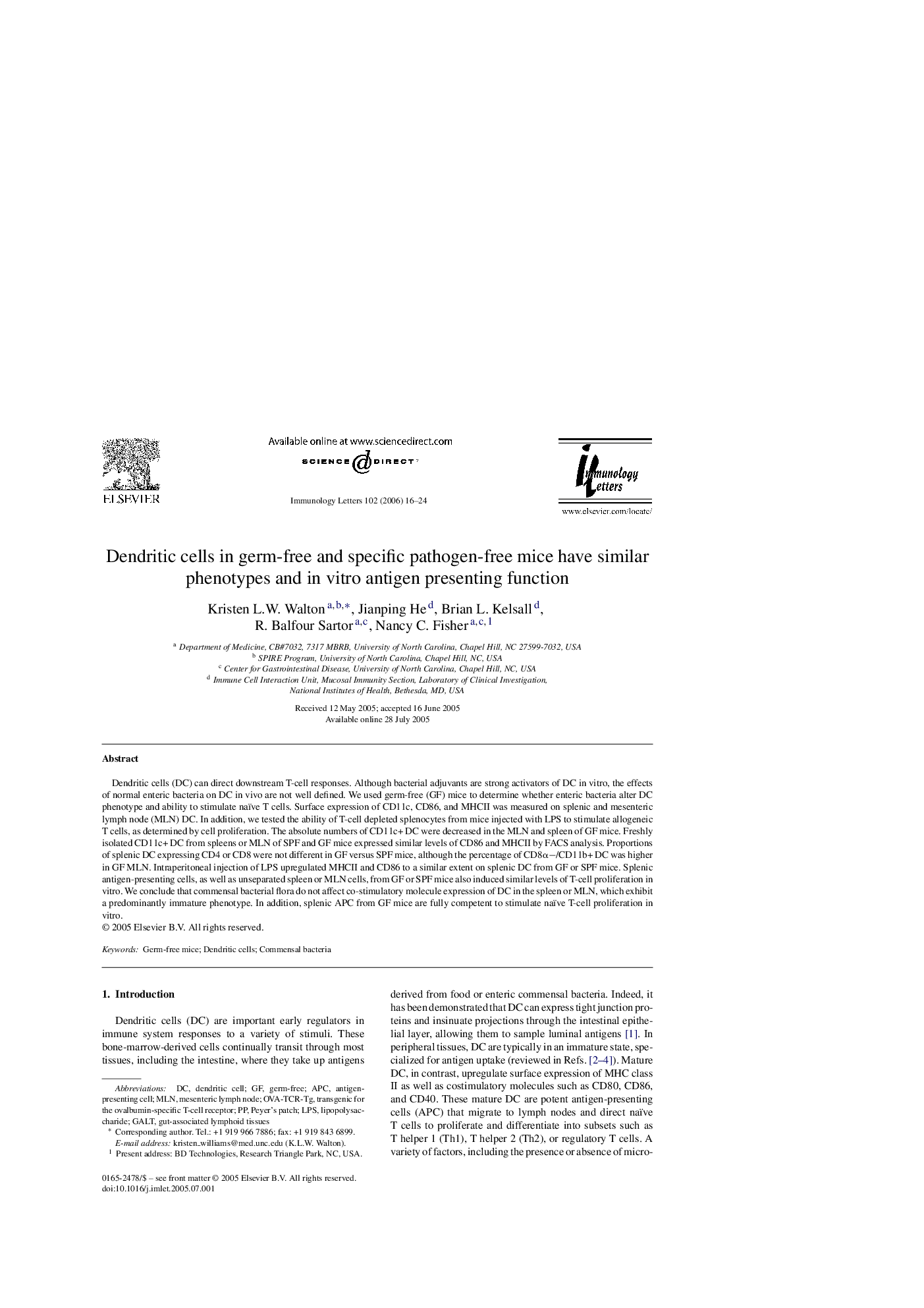| Article ID | Journal | Published Year | Pages | File Type |
|---|---|---|---|---|
| 3356550 | Immunology Letters | 2006 | 9 Pages |
Dendritic cells (DC) can direct downstream T-cell responses. Although bacterial adjuvants are strong activators of DC in vitro, the effects of normal enteric bacteria on DC in vivo are not well defined. We used germ-free (GF) mice to determine whether enteric bacteria alter DC phenotype and ability to stimulate naïve T cells. Surface expression of CD11c, CD86, and MHCII was measured on splenic and mesenteric lymph node (MLN) DC. In addition, we tested the ability of T-cell depleted splenocytes from mice injected with LPS to stimulate allogeneic T cells, as determined by cell proliferation. The absolute numbers of CD11c+ DC were decreased in the MLN and spleen of GF mice. Freshly isolated CD11c+ DC from spleens or MLN of SPF and GF mice expressed similar levels of CD86 and MHCII by FACS analysis. Proportions of splenic DC expressing CD4 or CD8 were not different in GF versus SPF mice, although the percentage of CD8α−/CD11b+ DC was higher in GF MLN. Intraperitoneal injection of LPS upregulated MHCII and CD86 to a similar extent on splenic DC from GF or SPF mice. Splenic antigen-presenting cells, as well as unseparated spleen or MLN cells, from GF or SPF mice also induced similar levels of T-cell proliferation in vitro. We conclude that commensal bacterial flora do not affect co-stimulatory molecule expression of DC in the spleen or MLN, which exhibit a predominantly immature phenotype. In addition, splenic APC from GF mice are fully competent to stimulate naïve T-cell proliferation in vitro.
